nashville_brook
nashville_brook's JournalAmerican Psychos: How we shouldn’t be doing business in politics
http://thefloridasqueeze.com/2015/10/25/american-psychos-how-we-shouldnt-be-doing-business-in-politics/A while back someone asked me, “When I run for office, will you support me?” They couldn’t tell me when they’re running, or for what office. They didn’t share a single policy or platform plank, which admittedly would be difficult to pin down if you don’t even know what seat you’re running for. I have no idea where this person stands on policy, how they make political calculations. And yet, it occurred to me that I’d heard them promote their wish to run for office many times, without any mention of why they wished to serve.
Instead, they were soliciting my “support” in the context that we belong to the same organization. What was clear, though, was an appeal to transactionalism: “We’re all ‘members’ here, so what’s the problem?” Shouldn’t membership have its privileges? Why should the substance of a campaign matter? Who cares what office, what policies, or what circumstances?
The ask came as I was gathering my things to call it a night, which only intensified the oddly transactional flavor of the moment. Like, “One last thing before you leave, we’re taking a head count. Can we put you in the yes column?” I told them that a few weeks earlier I’d given a good friend this answer to a similar question: “I’ll be glad to look over your platform and ideas once you have those materials pulled together.” The point being, I won’t hand out my approval sight-unseen even for someone I consider a good friend.
The context of the ask suggested pressure to conform. Call me old fashioned, but substance matters to me, and it should matter to anyone running for office. It saddened me that I’d be mistaken as someone who would gladly hand out “cocktail party political approval,” as if membership in a social club ensures one of a lifetime of non-accountability in the form of being excused from having to provide a rationale for electability.
I hadn’t given the exchange much thought until this weekend when I re-watched Mary Harron’s 2000 adaptation of Bret Easton Ellis’ American Psycho (written in 1991) for the first time since its release. I stumbled on a Youtube clip of the famous Business Card scene, which is as concise a study in conformity and aggression as you’ll ever find.
Re-watching the movie brought me to a better understanding of my reaction to that conversation: Requesting an unqualified promise of loyalty is an appeal to conformity and transactionalism. It shows disrespect for my integrity, and worse, seems to telegraph a dishonest approach to leadership. It’s the kind of oath that C students everywhere don’t mind giving and taking because it’s a shortcut to doing the work. “You scratch my back, I’ll scratch yours.” It’s so fundamentally worthless, why would anyone want the support of someone who would just give it without regard to substance?
In American Psycho, the main character Patrick Bateman (played by Christian Bale) is driven insane by his substance-free identity, in his substance-less world:

“There is an idea of a Patrick Bateman — some kind of abstraction. But there is no real me; only an entity, something illusory. And though I can hide my cold gaze and you can shake my hand and feel flesh gripping yours, and maybe you can sense our lifestyles are probably comparable, I am simply not there.”
Watching the movie a second time around I realized Bateman was, in effect, the only sane person in the movie because he was the only one paying enough attention to be driven to murderous rage by the non-stop nihilistic transactionalism of the world around him. Bateman and his colleagues were in “Mergers & Acquisitions” (or, "Murders & Executions," as his alter ego proclaims). He, like Ronald Reagan, was able to “get away with murder” because he manufactured an image and belonged to a social strata which ensured he’d never be called to account.
Coincidentally, as many of the icons of the age of American Psycho — Donald Trump, members of the Bush family, and the Clintons are all vying for President — Mergers and Acquisitions have hit new all-time highs, amounting for more than $1 trillion in trade this year alone. That’s trillion with a "T," and it’s brought to you by the Fed’s cheap money policy which makes these sorts of financial killing sprees so damn attractive (like an 8:30 rez at Dorsia). M&As are both a symbol and a source of wealth inequality. They destroy jobs, provide tax shelters and produce huge speculative markets on Wall Street that redistribute income from working families upward to the financial class — the .01 percent — the billionaires that Bernie Sanders keeps droning on about. The posh lives of the M&A brokers are soaked in the tears shed for the murder of the American Dream.
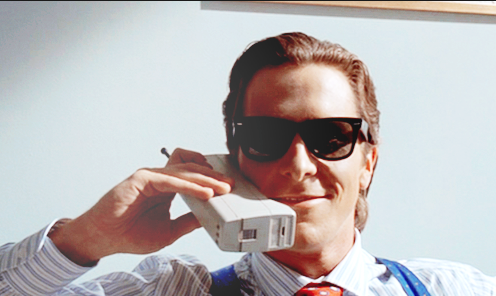
If there’s anything I want to contribute to political discourse circa 2015, it’s that we don’t have to make the same mistakes and easy trade-offs that were made in early 90s. I realize this is the “New Democrat” way that it’s done (everything old is new again), and it’s the way young people, especially on the fundraising end of things, are rewarded for doing it. But we don’t have to take this route. As Progressives we have access to a newer and better toolkit.
Back in the early 90s we had the excuse that ‘anything will be better than Reagan/Bush.’ Supposedly, we had no choice but a neoliberal, corporatist, favor-trading, blue dog to take us out of the Gipper’s Reign of Error. And what did we get for that? Financial deregulation and trade deals that have decimated the middle class and left us so weak as a country that the financial class is currently garnishing Social Security checks to collect student loan debt. Have we lost our collective minds?
We’re at a point in history now where we must create new futures, so that we don’t keep re-living these old nightmares. We have to be on the side of better ideas, not more effective favor trading. If all you want is my favor, without a description of what you're playing for, then no, I can’t be on your team.
It’s not enough to just have a “D” next to your name. It’s not enough that we belong to the same organization, or identity group. It’s not enough that we’re good friends, even. I don't even care if you're a family member — I want to see your plan to work for the people. And really, I need you to want this as much as I want it. It's not something that should be seen as a requirement for my approval. It should be seen as the most basic way we do business politically.
The question should never be whether I, or any constituency, fit in enough to be “one of you.” The question for me is always going to be whether you, as a potential candidate, intend to serve as “one of us.”
Otherwise, we're just trading business cards.
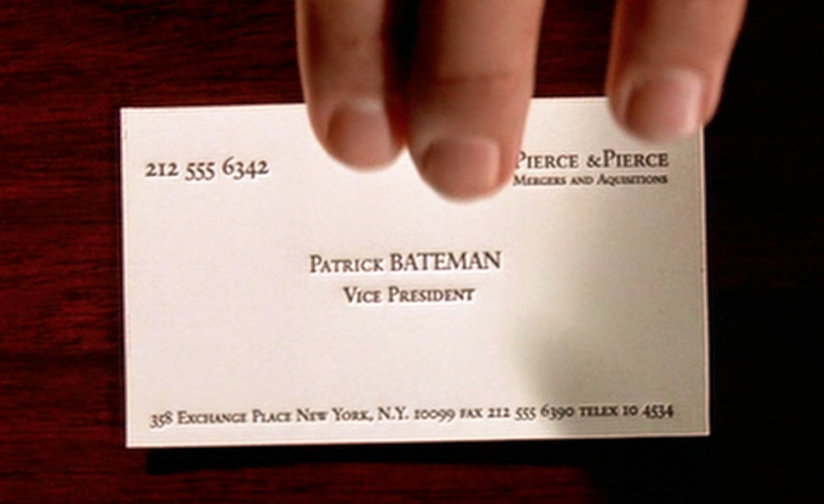
Debbie's debate disaster: we're letting Trump win
http://thefloridasqueeze.com/2015/09/26/debbies-debate-disaster-were-letting-trump-win/
Debbie's debate disaster: we're letting Trump win
by nashville_brook | Brook Hines - The Florida Squeeze
http://thefloridasqueeze.com/2015/09/26/debbies-debate-disaster-were-letting-trump-win/
There’s a conversation I’m having with my husband that goes like this. He’ll say, “There’s no way Donald Trump will ever get elected.” I roll my eyes. He continues: “He’s going to destroy the Republican brand. He’s not a threat, and in the end he’ll help the Democrats.” Then, as my youth flashes before me, I’ll say, “Yeah, but — Reagan.”
At this point, we look at each other and say, “you don’t even have to go back that far.” George W was elected — twice, if you count 2000, which I don’t.
The American electorate is quite capable of electing someone like Donald Trump. We’ve seen the White House occupied by dumb, mean, loud and dangerous types for most of our lives. There's no magical force is keeping us safe from the know-nothings.
What’s so infuriating about Trump, is that regardless of his chances of winning, he’s getting traction with a segment of voters that should be ours. These folks are attracted to Trump because he talks about the tax code and how he'll address wealth inequality.
These voters imagine that a predator CEO will govern on their side. That's a leap of reason the Dems should be able to counter in robust, empowering tones. Imagine if we had matched both their debates to enlarge this narrative and start a national discussion around wages and tax fairness, to push back on attacks on Planned Parenthood, and let scientists compare our positions on climate. We might have reaped the benefits of an American public who could see the Democratic brand shine, while the Republicans make asses of themselves.
Instead, the American public senses we have something to hide.
That's why I was glad this week when the Democratic Progressive Caucus of Florida called for Debbie Wasserman Schultz and the DNC to expand the presidential primary debate schedule. "Chair Wasserman Schultz not only made the decision to limit debate among our candidates, she scheduled the debates during weekends and holidays when television viewership is known to be low," said DPCF President Susan Smith in a statement. "What was she thinking?"
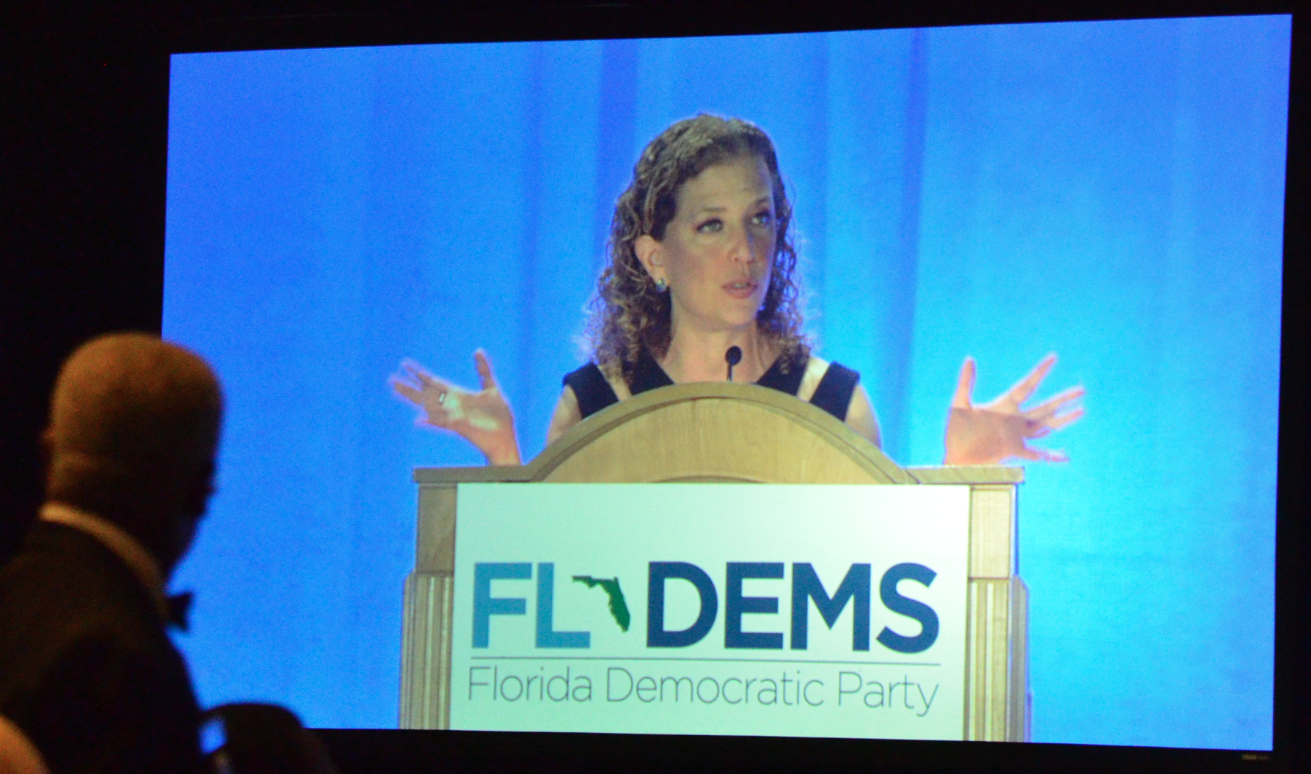
Of course, many people believe they know what Debbie Wasserman Schultz is thinking, which is that the party has its thumb on the scales for Hillary Clinton. She's not a graceful debater. Her style is that of a corporate lawyer whose instinct is to set up the prey, and then go in for the kill. She seeks to delegitimize and disqualify her opponents. In 2008 she suggested that Obama smoked weed, and that he might be a Muslim (you'll have to ask him). How will this approach look on stage in 2016?
We’ve already seen some ideas road tested on Sanders, with Clinton surrogates using his ideological roots as a movement progressive and democratic socialist, as well as his Jewish faith as a disqualifications (see the old canard of the dual-loyalty Jew). Diane Rehm of NPR fell for this, saying she had his name "on a list." These are ugly rhetorical strategies that divide the party and make enemies of those who she'll presumably need to win back after the Primaries are over.
Regardless of Wasserman Schultz' motives, though, back-benching the entire Democratic party during the Primaries for any reason is a scorched-earth strategy that hurts everyone.
Limiting debates makes Clinton appear afraid to debate Sanders. It also makes the DNC and party establishment appear unwilling to provide all Democrats an equal stage to be heard with the DNC’s favored nominee which, we'll recall, they’re not supposed to have. Rank-and-file Democrats see this lack of equity with their own two eyes, and it’s hurting the candidate it’s meant to help.
In the current environment it becomes necessary to avoid the appearance of being an “insider.” That’s why Hillary gave herself a makeover on Face The Nation last weekend, when she claimed that she was the real outsider in the race.

"...and I'm an outsider, and I'm Rosicrucian, and I only have one leg..."
It's an understandable tactic. Right now the American public wants an outsider so bad they’re willing to take it in the form of a mugging Donald Trump, who Frank Rich astutely points out, casually ripped the mask off the Clinton Foundation’s wink-wink/nudge-nudge quid pro quo, by claiming his donations obligated Hillary to come to his wedding.
As Secretary of State, First Lady, and the recipient of massive amounts of PAC money, Hillary is without question an apex insider; the top of the pyramid. What sets her and Trump apart with regard to outsider status is that she takes PAC money and he self-funds. Trump is making the case that that cozy relationships among the monied elite amounts to bribery no matter how you slice it, and the American public is nodding, “Yeah. We know.”
On a deeper level, I think there’s another issue driving the DNC’s bizarre stinginess with debates in this cycle. In 2008 all the candidates sang the same neoliberal tune. But this field of candidates features a real contender who questions the entire neoliberal political frame. Sanders stakes his political brand on being a movement progressive rather than an establishment neoliberal, and backs it up by shunning PAC money.
Sanders is not just a threat to Clinton, but a threat to the entire current approach of the Democratic Party. He's even questioning what what it means to be governed, and how involved we need to be in order to see the change we demand. 'We have to fight for these things together,' is a standard Bernie stump theme, and he makes a convincing case that a national coalition he develops won't eventually be veal-penned.
In an email sent out yesterday Sanders quoted the Pope, whose own anti-establishment leanings have been the hallmark of his papacy:
“If politics must truly be at the service of the human person, it follows that it cannot be a slave to the economy and finance.”
This is just the opposite of the kind quid pro quo, establishment neoliberalism from which Clinton draws her power. Many in the Hillary camp are likely contemplating the uphill battle they face trying to sell her DLC, Third Way, New Democrats style of politics in the new environment of the “disruptive electorate” that’s full of pissed off independent voters not beholden to either party.
Meanwhile, there’s a chance that if the Democrats get anyone to tune in to their debates, Bernie Sanders could become the anti-Trump. I think this is what keeps Wasserman Schultz awake at night. If she were truly concerned with countering the Republican narrative, she’d make sure Democratic candidates had equal, prime time with Republicans rather than competing with weekend sports or holiday family gatherings. But as it stands, the American public will see about twice as much of the Republicans than the Democrats before voting. This is not to the party’s advantage.
It's frustrating because the Democrats have a clear opportunity to make hay of a shockingly weak Republican field. But to do so we must present a credible counter-narrative. A return to the NAFTA, dot-com bubble, Glass-Steagall-repealing politics of the 90s will be a hard sell in the present environment. If Clinton does get the nomination, she'll likely need more than a few whacks at it to get her feet under her. So even if we believe that Clinton is our only hope for the general election in 2016, we still need more than a handful of debates on weekends and holidays.
Since 2008 many voters have seen the American Dream completely evaporate. We need real solutions, and real fighters who aren’t afraid to stand in front of us and compete for our votes at least as hard as the Republicans are competing. To do any less is bad strategy, bad faith, and we have to be mindful of how hubris could very easily hand the general election over the other side.
WHO STOLE THE SOUL: Defining the battle for the "soul of the party" for FL Dems
WHO STOLE THE SOUL: Defining the battle for the "soul of the party"by Brook Hines | nashville_brook
https://thefloridasqueeze.wordpress.com/2015/07/17/who-stole-the-soul-defining-the-battle-for-the-soul-of-the-party/?preview=true&preview_id=12688&preview_nonce=3f5ed76232

It’s been said of Florida’s highest-profile 2016 Democratic primary races, that they’re battles for the soul of the party. It’s strange nomenclature, even if on the the face it seems clear cut. It’s not obvious what the party’s soul actually is, what it looks like, or how we’d know if was won or lost. Regardless of how vague and ambiguous it is, “The Battle For The Soul of the Party” (BFSP) is compelling. You don’t want to miss a moment of this action, which will continue on for the next eight months, and beyond.
There are certain assumptions that can’t be avoided in this scenario. Even though it’s not made explicit, it’s implied that there’s one candidate who represents The People (the soul) and one candidate who doesn’t. So the BFSP is an epic battle of the little guy trying to win against all odds against the forces of evil. It’s classic comic book stuff.

Political campaigns speak the language of symbols, and the most basic of symbolic gestures is the binary opposition: good or bad, left or right. According to the BFSP metaphor we’ve added a new one: The People or The Party. Everyone wants you to think they represent The People and not the Powers That Be. Thankfully there are voting records and public statements to help us decipher who is on the side of The People and who isn’t.
Writing in The Nation, Eric Alterman observes that the clearest version of BFSP is illustrated in the war between Governor Andrew Cuomo and New York City Mayor Bill de Blasio:
Alterman is saying that giving lip service to economic justice while delivering only identity politics is the highest form of cynicism.
Progressives pay a big price for steadfastly insisting that The People be treated fairly. Party leaders distance themselves from these champions. They forego easy money from big donors, and they're taunted in the media as chasing unicorns. Alterman points out that “Centrists,” or more accurately, Corporatists, are willing to cut deals that will extinguish the New Deal. Some do it more quietly than others, but all will claim that they’re “the grown-ups” in the room for selling out the interests of the The People.
If cynicism and hypocrisy is the only route to office, then what’s the point of electing these guys? It’s the “Lie Agreed Upon,” that no one will rock the boat when those who sell themselves as Progressive actually vote as Corporatists. The extremes of economic inequality that are plaguing our state are quickly making identity politics and social liberalism luxuries of a bygone era.
What people need right now are fair wages so they can have a roof over their head and maybe see a doctor. Our unemployment rate is low. Workers are more productive than any time in history, and yet families still can’t make ends meet, take a sick day or have the assurance that a medical emergency won’t result in bankruptcy.
Alterman continues: “On the other side is New York Mayor Bill de Blasio, also a social liberal, who has focused on tackling the city’s inequality crisis...he has passed paid-sick-leave legislation and a limited living-wage executive order; and is fighting for a $15 minimum wage in the city, among many other initiatives. But most of his plans have been frustrated by resistance in Albany. This is the case even when such measures would cost the state nothing.”
Progressives know that the battle for the soul of the party isn’t about a left/right binary measured solely on identity politics. It’s about a rich/poor binary — or, rich/middle class, if we’re using approved messaging. That’s why progressives put an emphasis on examining the actual candidates to determine if their actions are consistent with prioritizing the economic interests of everyone, and not just the super-wealthy.
Progressive values are so ascendant in the culture now that even “Centrist” party candidates trade on the idea that a win for the soul implies a win for Progressives. Otherwise they wouldn’t send out fundraising emails claiming to offer “bold, progressive solutions,” and that they’ll win “with grassroots support from thousands of supporters...not just big donations from lobbyists and millionaires.” Which is to say, “this candidate’s base actually comprises lobbyists and millionaires, but won’t you kick in a few bucks so we can also claim to have grassroots support?”

If being a Progressive is so beneficial for garnering votes and small-dollar donors, why don’t these politicians vote that once they’re way in office? If those votes given to Republican causes were so honorable, why not fundraise on them? Why not own your centrism? Elected officials either voted for corporate interests, school privatization and mandatory ultrasounds, or they didn’t. If these were such good votes, what’s the problem in selling yourself based on them?
Why not tell the truth?
The progressive base in Florida is stronger than it has ever been. I don’t know why that is. Maybe it’s because people’s lives have reached a point where they’re looking for real solutions and people with backbone to fight for them. Maybe it’s because Progressives have gotten better at getting our message out. Maybe Floridians are just sick of losing all the time with Republican Lite candidates who promise and can’t deliver.
Whatever it is, no one is breaking out their old DLC t-shirts to head down to the campaign rally. Instead they’re wrapping themselves in rainbows and green signage, while downplaying all the votes that shifted economic burdens from corporations to working and middle class families. Or, required mandatory ultrasounds, or [link:money from public schools to line the pockets of private corporations|took money from public schools to line the pockets of private corporations].
If this election is for the soul of the party, we should at least define what’s meant by that. If cynicism is the only route to office, and “the grown-ups in the room” demand only lip service for issues that are matters of life and death to working families, then what’s the point?
This battle for the soul of party isn’t about symbols — we’re sick to death of symbols. It’s about whether or not anyone in the party actually has a soul.
ON MESSAGING: Why FL Democrats Can't Speak Their Truth
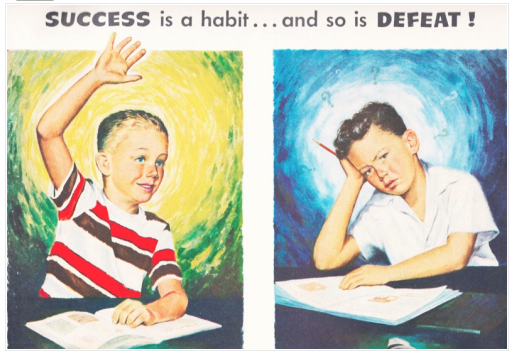
ON MESSAGING: Why Florida Democrats Can't Speak Their Truth
By Brook Hines - nashville_brook
http://thefloridasqueeze.com/2015/07/07/why-florida-de…ak-their-truth/
A reporter from the Tampa Bay Times asked me recently what I thought Florida Democrats’ message was. Off the top of my head I said, “We stand for values that promote a stronger Florida, like a healthy environment, economically secure families and a brighter future.” Later I added another thought in an email:“Our measure of success is when everyone succeeds.”
In the final published piece titled “Florida Democrats plot a road to relevance,” I was a bit taken aback that some of our party leaders, when asked the same question, couldn’t quite spit out an answer.
Alan Clendenin, vice chair of the Florida Democratic Party, told the reporter, “Our brand is sound,” adding, “Our problem is being able to boil it down into something people can buy into in a guttural way.” I assume he misspoke, but the malapropism gave me pause. “Guttural” refers to a strange, unpleasant, or disagreeable noise made in the throat; an inarticulate growl of sorts.
“An inarticulate growl” is where Democratic messaging stands in Florida right now. I believe this isn’t for lack of talent, even though FDP Communications Director Joshua Karp has departed to the Patrick Murphy campaign. There’s plenty of great communications professionals in the Democratic family, and stacks of research to apply to our project.
The fact is, we can’t have a clear message until we resolve the tension between voter and donor interests. And, there’s no better place to observe this conflict than in the Democratic Presidential primary.
It’s clear that the brand of the Democratic Party is contested territory right now. You’ve got the Bernie Sanders vision, arguing forcefully that Democrats represent average Americans who need leaders to fight for us against Wall Street and other forces economic predation. Great. We can run with that.
But then there’s Hillary Clinton, surrounded by Wall Street insiders, lying low, seemingly focused on not being quoted on anything whatsoever.
Sanders is the rock-star of the two at the moment, rallying stadiums wall-to-wall with cheering fans. That’s no accident. He has the freedom and the courage to lay out specific policies addressing the realities of American households, whose median net worth plummeted by an average of 36 percent, thanks to Wall Street’s pump and dump schemes.
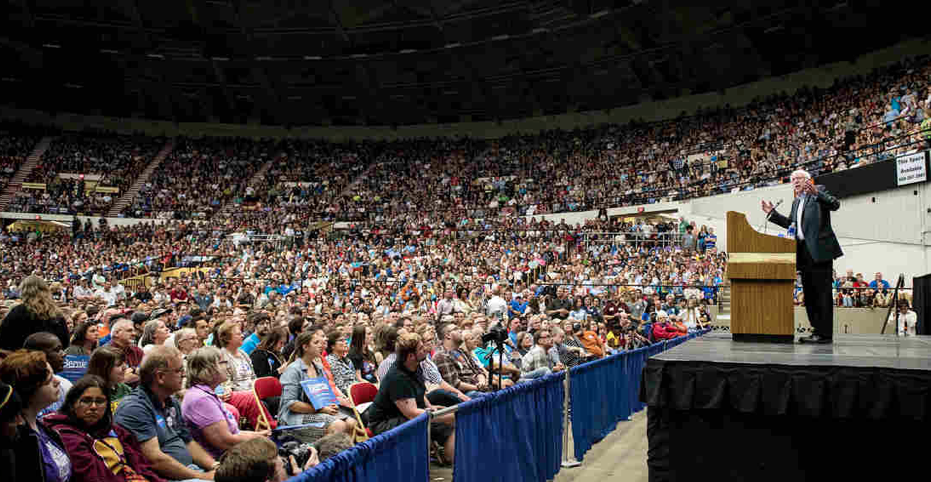
Meanwhile, Clinton is playing defense; keeping it tight; doing roundtables with hand-picked small business owners, trying her best not to outline specific policy positions. A new tactic, perhaps understandably, is to make the claim that she’s the “most progressive” candidate, largely based on her support of gun control. It’s one of the few areas Sanders is weak on, so it makes sense to try and make the most of it. Predictably it’s not catching fire.
For his efforts, Sanders has been rewarded with passion and momentum, while Clinton’s campaign seems increasingly cautious — literally roping off reporters; issuing press releases about how she’ll start doing interviews…”soon.”
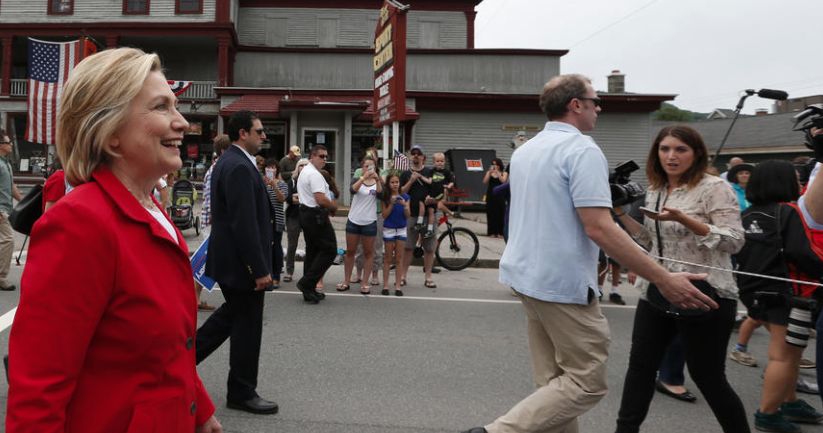
We’d be blind not to see this same tension in the Democratic brand — between the energetically aspirational and the cautiously generic — reflected in our state party. Our leaders are vapor-locked, saying little, watching and waiting to see what the Clinton campaign does. Her triangulation is their triangulation.
But why? Why is our old, powerful moral narrative — the one catching the country on fire through Bernie Sanders’ Lollapalooza-like rallies — somehow considered too dangerous by our own leaders? Do they not understand that the message works? Or is it more a problem of not offending the donor class standing in the shadows?
The Messaging section of the LEAD Task Force Report actually recommends a significant pivot in framing. The report suggests that we appeal to an upscale “middle class” mentality, which leaves out low-income and working families who are struggling to make ends meet. This new, wealth-friendly language was in such heavy rotation at the Leadership Blue Dinner that it harkened to the absurd overuse of “September 11,” by Republicans in the 2004 election cycle.

“Middle class” is a poor a place-holder to represent the Democratic base. It’s boilerplate New Democrat Coalition (Wall Street-friendly) messaging that expressly excludes low-income and working-class people, and so implies that Democrats will leave those who can’t make ends meet in the dust when it comes to crafting policy. This is not a message that will fill stadiums — or voting booths.
As a matter of fact, in terms of neutralizing the opposition and energizing our base, research by the Center for Community Change shows that one of our strongest messages is “America has swung out of balance, because economic rules unfairly favor the rich.” According to a recent report, this message, and a handful of others like it that confront economic predation, beat leading opposition arguments by at least 10 points.
What the faux middle class messaging communicates to working families is that if they can’t make ends meet, they don’t matter to Democrats. And worse, it makes it sound like middle class people are somehow turned off by issues pertaining to working class people. These ill-advised assumptions remind us of Bill Clinton’s DLC-inspired policy campaigns of the ’90s, like “ending welfare as we know it.”
That’s the messaging of the past, and Sanders is broadcasting the message of the future. A lot of water has passed under the bridge since Bill Clinton’s time in office. Those, like myself, who were able to reach middle class status during the dot-com boom, have since lost jobs, houses and retirement savings in the Great Recession. Those who returned to jobs or remained employed have seen wages stagnate while productivity breaks records. We’re still scarred by the economic predation, because nothing was done to ensure that it won’t happen again.
This means we all identify with the economic justice message. Fewer people are drowning, but the trauma of The Great Recession still haunts us. And that terrifies Wall Street, as well as other big corporate interests who’d rather not be asked to raise wages or pay their fair share of taxes.
In terms of economic security, Americans are not okay. Not by a long shot. Young people coming out of school face an uncertain future with more debt than we’ve ever seen in the history of, well, debt. Seniors have been waiting for the other shoe to drop on The Grand Bargain to gut Social Security in the form of raising the retirement age, and cutting benefits. Families with children can’t afford day care to keep two incomes, and their public schools are being sold off to private companies.
The next election, and every election after, must address this, and Wall Street lobbyists know it. They’re willing to spend whatever it takes to stop that before it happens.
In the TBT article, 2010 Democratic nominee for Attorney General, Dan Gelber comes the closest to putting his finger on a message: “We’re looking out for you. We’re the ones who have your back.” Much better. Now let’s actually have our voter’s back on issues that matter.
And, let’s not double-down against having any message at all. One political insider shared this thought on Facebook recently: “I am sick unto death with ISSUES…How are we supposed to organize if we spend all our time talking about issues”? He suggests that we instead knock on doors and, I suppose, shame our neighbors into voting.
Please, don’t take this advice. Talking about issues is how we connect with voters. Shame is not who we are. Economic security, racial justice, a cleaner environment, healthy families and marriage equality — this is who we are. If the closest thing we have to a message is, as the joke goes, “the beatings will continue until morale improves,” then we’ve lost before we started.
When our party stops having the voters’ backs on the issues that matter to them, we matter less to voters, and rightfully so. We succeed when we’re working to ensure that everyone succeeds. If our leaders are frightened by this message, and the actions demanded by it, then it’s time to find new leaders.
Grayson’s ‘Just War' of Words proves he's got something to say
Click here for Phillippi response and update --> http://thefloridasqueeze.com/2015/05/30/graysons-just-war-of-words-proves-hes-got-something-to-say/comment-page-1/#comment-37030
GRAYSON’S ‘JUST WAR’ OF WORDS PROVES HE’S GOT SOMETHING TO SAY

Clutch your pearls and hover over your favorite fainting couch. It’s primary season, so if you don’t already have one, here’s a link to DIY your own Fainting Couch and Toddler Bed. Build yours this weekend, because with 17 months until the election this baby is apt to see some action.
Check out this couch fainter of an email circulated by (FL Governor hopeful) Nan Rich’s former Data Director Sean Phillippi. In the email that that some are calling spam, Phillippi says he’s a “proud member of the Progressive Caucus,” and launches into a "concerned Democrat" tirade against Alan Grayson, the presumed primary impediment to lifelong Republican Patrick Murphy’s entitled bid for Marco Rubio’s open Senate seat. It's published here at the Squeeze at Phillippi's request.
You have to wonder whether people who know Phillippi knew they’d be targeted for unsolicited messaging on behalf of conserva-Dem Patrick Murphy from the progressive Governor Nan Rich’s former Data Director. In one email chain shared with me, a lucky recipient of this bonus messaging complains that he didn’t sign-up for Murphy campaign propaganda. Phillippi responded in part by saying he knows Murphy “very well” because he "worked with him since he first started running for office in early 2011,” which raises the uncomfortable question of whether the Murphy campaign asked for access to Nan Rich's supporter database.
And this isn’t Phillippi’s first swipe at Grayson. A previous attack piece featured the bizarre claim that Grayson couldn’t win African American votes in a statewide race. Now Phillippi would like you to believe that Grayson presents a threat to the entire Democratic Party. The apocalyptic prophecy states that “in a fractious primary” Alan Grayson’s language is too colorful, and his divorce so overly divorce-y, that should he run for Senate he’d “be a serious anchor to Democrats nationwide in 2016, and cause grief for our Presidential nominee at the top of the ticket.” It might be worth the eye-rolling to be in on this spam list for pure entertainment, because really where else are your going get this level of political forecasting and unwitting satire?
My all-time favorite among these nuggets of apocalyptica might be the complaints about Grayson’s comparison of the Tea Party to the KKK, referring to the fringe-right Tea Party as “the home of bigotry and discrimination in America today, just as the KKK was for an earlier generation.”
Here's a fuller context of Grayson's comparison: “....when the President visited my home of Orlando, Tea Party protesters shouted “Kenyan Go Home,”....[with] posters saying “Obama’s Plan: White Slavery,” “Imam Obama Wants to Ban Pork” and “The Zoo Has An African Lion, and the White House Has a Lyin’ African."

That sort of over-the-top racist rhetoric had been heating up for months before Grayson called it out. When was anyone going to put their foot down? This rhetoric has an inherent subtext of violence. In whose reality is it appropriate to let that stand unchallenged? Are we all supposed to just “take it” and wait for shots to ring out? How is that a liberal Democrat calling out thinly veiled dogwhistles rooted in a history of racial contempt and real violence for being exactly what they are is intemperate, while the racist bile itself is apparently to written off as some kind of "boys will be boys" tomfoolery and let go?
Grayson continued: “Members of the Tea Party have circulated countless altered pictures depicting President Obama and the First Lady as monkeys. Tea Party members also called my fellow Member of Congress, civil rights hero John Lewis, a “n***ger,” and Rep. Barney Frank a “faggot.”...Tea Party Members of Congress have referred to Hispanics as “wetbacks,” and having “cantaloupe-sized calves” from picking fruit...there is overwhelming evidence that the Tea Party is the home of bigotry and discrimination in America today, just as the KKK was for an earlier generation. If the hood fits, wear it.”
The ugly language may be uncomfortable to hear, but the ugliness didn't come from Grayson pointing it out -- he was simply one of the few willing to do so. Since when do Democrats merit attack from "consultants" within our own party for frankly confronting the worst behavior of our opponents? Isn't that what we ask our "representatives" to do on our behalf?
Another famous Alan Grayson quote that DLC campaign consultant types would like you to feel guilty for is his famous “Die Quickly” comment on the floor of the House when he was fighting so hard for the Affordable Care Act. This full quote read: “The Republicans’ health care plan for America: ‘Don’t get sick.’ ...But..If you get sick, America, the Republican health care plan is this: "Die quickly."

People like Charlene Dill would tell you how true this if she were still alive. She died quickly from having no health insurance, because the Republicans in Florida would rather that a young mother die from easily treatable illnesses than to provide insurance and see them get better. Again, this is simply a true statement.
It’s statements like these are part of the Just War of Words that Alan Grayson has fought on our behalf, which has made him the national brand he is. He’s the very definition of a “bold progressive,” and that’s exactly the problem for these who’s-paying-me-this-month-types.
Phillippi wants to complain about Grayson brandishing a sharpened metaphor? Why not instead attack the Tea Partiers for their racism, or the Republicans for obstructing healthcare and letting Floridians die in the process? Apparently we should all join in killing the messenger, lest Republicans be offended when their quite genuinely atrocious policies and tactics are pointed out publicly.
Alan Grayson didn’t create the ugliness in the Republican agenda — he’s working to reveal what's already there so that we might, at last, do something about it. That’s apparently something recent Republican Patrick Murphy's supporters find distasteful and indecorous.
But the young former data director circulating nasty anti-Grayson email really isn’t the problem here. He’s doing it on behalf of bigger, bluer dogs up at the Democratic Senatorial Campaign Committee, who share interests and consultants with Patrick Murphy. They’re petrified that a real firebrand liberal like Alan Grayson is in the primary because he’ll win it. Their dystopian view is that a Democratically-controlled Senate with a formidable progressive caucus would be much more difficult to steer toward Wall Street-friendly interests than the New Democrat Coalition are accustomed to ply on cheap dates with their conservadem puppies.
And there is a bigger picture in play. When the Big Blue Dogs refer to a “fractious primary” they likely also have in mind the Bernie Sanders vs Hillary Clinton primary. Sanders presents a stark contrast from the bank-funded, corporate-friendly stance of Clinton, and that is apparently sufficiently threatening to the status quo to get Wall Street and its many surrogates lashing out early. If Grayson can succeed despite ruffling the smooth feathers of the financial elite, maybe Sanders can as well. Cue those pearls getting ground to dust in a thousand wealthy, sweaty fists.
"Centrism," as that term is tossed around today, isn’t a middle between Republicans and Democrats. It’s literally a "third way" that gives primacy to business interests and then says, "See, they're doing better now -- you’ll be back in shape in no time." It's just another way of selling trickle down economics and Charlene Dill healthcare. We’ve spent 30 years trying to make neoliberalism work, and it just hasn't done the job, either in terms of results or success at the polls. The voters have already moved on from the illusion that we can bow to monied interests in exchange for slightly softer social policy and somehow come out ahead.
The consultant class needs us to believe that their losing strategy and tactics aren’t the problem. Instead it’s our dang liberal ideology holding us all back. To be clear, that ideology is the value system that says if you work hard and play by the rules you won't wind up living on the streets. That if you’re disabled, or a senior, or too sick to work, that the safety net you relied on your whole life will still be there when you need it. It's the value system that says big business should pay their fair share and not leave our country in ruins, and that says economic and political inequality is morally wrong. Centrists hate this talk because it gets in the way of a good back-room deal.
Instead of trying to paper over the literal worldwide social and economic destruction that catering to monied interests has wrought, from which we have yet to even recover, and complaining worriedly about the "tone" of angry Democrats and the middle class, perhaps our helpful "consultants," with their access to data, might actually do some analysis of what has gone wrong, instead of doubling down on "kinder, gentler" conservatism that delivered the legacy of the Bush years still damaging us today.
Grayson is one of the few bold Democrats in Washington like Elizabeth Warren and Bernie Sanders who refuses big donor money in order to fight the Just War of Words.
They might use sharpened metaphors, colorful language, and (gasp!) a raised eyebrow here and there on our behalf against the armies of corporate lobbyists poised to clear the last few scraps from the table.
These are not the people causing the downfall of the party. The ones you’re looking for are the ones who can’t win an elections because they keep running conservadems like Charlie Crist and Patrick Murphy.
The Proof Centrism is DEAD -- who is burying "no difference btw Ds & Rs"

This piece from Mike Konczal appeared in The Nation yesterday and the discussion that resulted on Facebook showed that folks missed the point of the article (or didn't read it).
Centrism ISN'T the middle between the two parties. It's literally a "third way" that gives primacy to business interests and then says, "see, they're doing better now -- what's your problem?" It's just another way of selling trickle down economics. It's neoliberalism. It's a lie. We've done this for 30 years and done nothing but dig our hole deeper, to the point where people in my age group have no hope of retirement and are likely looking at seriously dire circumstances due to not being able to work and pay for housing.
None of this is "sensible," unless you're a Wall Street millionaire. It's time we took off our blinders and realized that when people say "there's no difference between the parties," THIS is what they're talking about: bogus CENTRISM.
Ideology isn't a bad word. For liberals and progressives, ideology is our value system that says if you work hard and play by the rules you won't wind up living on the streets when you're 65 and too sick to work. It's the value system that says big business should pay their fair share and not leave our country in ruins. It's the value system that says economic and political inequality is MORALLY wrong. It's the value system that says we fucking mean it when we say "one person one vote." Not, one person (who hasn't been arrested, or isn't diluted in a certain district, or shows up at an under-resourced polling place, or has been purged from the rolls b/c their names sounds hispanic, etc etc). It's the value system that says OUR government exists to create a better world for us and our children. We call that CIVILIZATION. That means cities that work with infrastructure that doesn't kill people, but it also means exploring the cosmos and finding cures for diseases.
Hell yeah Centrism is dead. It killed itself from its own gluttony. It's time to replace it with real Democratic values that benefit everyone. We have serious problems to solve and no time to waste on triangulation and corporate giveaways.
LET'S DO THIS.
And yes, this message is in support of Bernie Sanders, Alan Grayson and any other Democrat who isn't afraid to have actual REAL values that can improve life for all of us.
http://m.thenation.com/article/207833-proof-centrism-dead
The Proof That Centrism is Dead
(snip)
An optical illusion has shielded centrism from critique. Centrists position themselves as anti-ideology, representing a responsible compromise between liberals and conservatives. The word conjures sobriety and restraint, caution and moderation—all of which sound compelling in uncertain economic times.
But institutionalized centrism is more than that: It's an elite group of thinkers and writers, popular in Washington, DC, and favorable to business leaders, who told a very specific story about what was happening during the Great Recession. Circa 2010, they argued for a "sensible" response to the Great Recession: reduce the deficit to fix the short-term jobs crisis, privatize Medicare, and focus on the long-term economy—since, they claimed, working Americans would eventually bounce back during the recovery. Democratic candidates took these positions seriously. Yet each element of the centrist story has turned out to be absolutely false.
(snip)
This failure explains why liberal politicians will sound more confidently liberal in 2016: The dominant ideology pulling them toward business interests has failed. Thus, liberals can analyze the economy within a structural framework that isn't muddled by a commitment to wrongheaded corporate prerogatives.
The last, and arguably most insidious, thing about centrism is the implicit idea that there's no real difference between the parties—just good and bad administration of the centrist common sense. President Obama, who thought he could transcend party differences through personality, suffered from the centrist orthodoxy. The GOP, caring far more about privatization and lowering taxes on the rich than about deficits, benefited. However, 2016 will point up the real differences between the two parties, and this time the Democrats have a shot at getting it right.
Progressives just changed the 2016 election narrative by blocking TPP fast-track
Links found in original here --> http://thefloridasqueeze.com/2015/05/13/progressives-just-changed-the-2016-election-narrative-by-blocking-tpp-fast-track/

In a last-minute huddle, Democrats blocked fast-track authority (TPA) for the Trans-Pacific Partnership (TPP) in the Senate, saying they had concerns about enforcement of protections. This was a big, multifaceted win for progressives. One, Elizabeth Warren’s Klout score just went way up. Two, the TPP now has a good shot of being killed in the House with the momentum that’s been built. And three, the emerging progressive populist agenda has folks wondering if this changes the dynamic for 2016. Will Hillary Clinton respond by siding with Warren, or will she re-launch her Blue Dog brand?
It’s a shame that all this comes as the result of President Obama’s increasingly ugly public spat with the progressive wing of the Democratic party where he’s focused his attention on marginalizing Senator Warren. Yesterday’s vote shows that Warren isn’t the one out in the weeds — it’s the President. The bright side is the party is united like it hasn’t been in quite some time. This is a true values debate, and progressives are leading the charge to advance an emergent populist agenda that aims to patch the holes in our economic system which have led to the greatest wealth inequality since the Gilded Age and robber barons.
The more the President attacks Senator Warren, the more power she accrues. This just feeds the momentum for a new progressive agenda such as Bill de Blasio’s “Progressive Agenda to Combat Income Inequality,” and Bernie Sanders’ “Economic Agenda to Combat Income Inequality.” It’s propelling the progressive brand on the national stage with leaders like Alan Grayson appearing as the reasoned advocate for working Americans. Here’s what Grayson says about TPP:
All this progressive ascendency seems to be making Hillary Clinton nervous. She hasn’t taken a question from a reporter in more than 20 days — approximately the life-span of the TPP dustup. She’s also been busy forming a new Super PAC called “Correct The Record,” to raise money specifically for political research, rapid response and communications in coordination with the campaign. Perhaps TPP is on their project list. More likely though, they’re hoping the deal will die quickly, so Hillary doesn’t have to weigh in either way.
Obama deciding to go personal with Warren seems uncharacteristically ham-handed. In his interview with Yahoo’s Matt Bai, the President took an unmistakeable condescending tone, instead of referring to “Senator Warren,” he comes off sounding paternalistic. He says “Ehhhh-liz-ah-beth,” as if she’s his little sister and can talk to the Presidential hand. It was so bad Sen. Sherrod Brown of Ohio called it “disrespectful,” and suggested the President wouldn’t refer to a male Senator in that belittling manner. That’s the way it sounded to me too.
Dana Milbank wrote about the personal Obama-drama, asserting that his vindictive manner could be what actually kills the TPP. Milbank observes, “The rhetoric suggests that Obama has given up trying to persuade his fellow Democrats to join him in supporting ‘fast track’ approval…and that he’s lashing out at them in anger.”
Maybe this is all eleventy-dimensional chess. Maybe Obama is allowing the deal to be damned with faint praise. Or, damned with tainted praise, courtesy of every Republican and corporate lobbyist in DC. This is the stuff that GOP dreams are made of. Well, this and the suffering of little children. It’s just impossible to believe Obama would betray his values like this. He’s a “community organizer” who promised to “put on his comfortable shoes” to march with unions on worker protections. Of course, he also downgraded that in his Yahoo interview to a less strenuous “stand with” unions. Sorry guys. These Nikes are comfortable, but they’re not that comfortable. That pinch you feel is the suffering of slave labor in Vietnam, and the loss jobs here at home.
If the party were really bringing their game, the TPP would be the perfect strawman to kickoff the 2016 campaign season. Hillary hasn’t released an economic plan yet, so all this timing is either too perfect, or perfectly disastrous for her campaign, depending on what her economic plan turns out to be. There’s signs she might come around to a progressive agenda. Clinton advisor Joseph E. Stiglitz, the Nobel laureate in economics, just released a scorching report on economic policy. One of the highlights of the report is that trade deals like the TPP are largely to blame for our explosion of wealth inequality. The report calls for “rewriting the rules of our market economy to reduce those inequalities.” One of the pull-quotes in the report reads: “Inequality has been a choice, and it is within our power to reverse it.” That’s the stuff great stump speeches are made of.
If Hillary crafted a progressive Stiglitz-Warren economic policy, and made it the centerpiece of her campaign, she’d easily win over progressives and unite the party. It would be a master stroke of triangulation — the sensible and pragmatic thing to do. It’s the sort of thing you’d expect from a smart politician who recognizes that Elizabeth Warren has just been anointed the de facto leader of the Democratic Party.
Dems can do better than "too big to fail" campaigns
https://thefloridasqueeze.wordpress.com/?p=11570&preview=trueTwo months ago the New York Times published an article that gave the Hillary Clinton presidential campaign the “too big to fail” tagline. Titled “Democrats See No Choice but Hillary Clinton in 2016,” the piece revealed that the national Democratic party takes the attitude she’s an incumbent and they have no Plan B to a Hillary nomination. The party is so invested, even 18 months out, that should she run into trouble, they’d have no idea which way to turn.
The problem with this template, which has also been applied to the Patrick Murphy Senate campaign, is it ignores everything we know about how politics works now. As Democrats we like to see ourselves as the smart kids in the class — the ones who believe in climate science and evolution, but we could use some remedial sociology.
The common wisdom has changed since the last Clinton administration. First off, the swing voter is a myth. To win we have to mobilize voters who stay home. That’s the base and left-leaning voter. They’re people who’re motivated to vote because they really believe reform is possible. They want real change. They’re the people who didn’t vote in 2014 because the party eschewed Democratic values, putting an embargo on immigration reform, for example. These are people who voted for Nader or simply didn’t vote for Gore because they had Clinton-fatigue. They want to believe.
When MSNBC’s Steve Kornacki covered the NYT’s article they illustrated their segment with polling. This slide should be particularly troubling for anyone in the Clinton or Patrick Murphy campaigns right now. It shows that voters have a much stronger preference for candidates who promise to bring change, than for those who have experience.
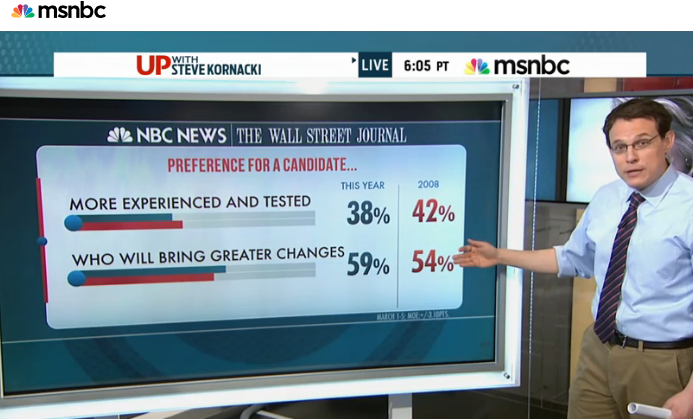
This number has ticked up since 2008, so apparently there’s some “hope and change” that’s been left on the table. This would help explain how Bernie Sanders got 200,000 volunteers, raised $3 million dollars and was able to hire Obama’s entire digital team all in less than a week from announcing. Today he announced a bill to break up too big to fail banks, saying if they’re too big to fail, they’re too big to exist. If only our party understood this.
The next slide drives the point home. Both frontrunners are seen by voters as “representing the past.” On this, Jeb beats Hillary by 9 points, which might explain why we’re hearing a lot less about him lately and a lot more about “young Koch firebrands” like Marco Rubio and Scott Walker. If they put up someone who promises “change” — no matter how radical or shitty — that person could win in a race against a candidate perceived as representing the past.

Our donors have funded us into a corner. The party could let the funding and endorsements flow after the primaries. Let the people decide if Hillary represents change or not. But instead they’ve hedged all their bets in order to drive other candidates from the field. It’s the height of bad faith.
The idea of Democrats pushing “too big to fail” campaigns triggers the need for new measures of wrong-headedness. The most significant defining political themes of our time are the Great Recession, the bailout, and Occupy. There’s no underestimating the impact this has had our collective psyche. Imagine the zeitgeist is an ocean that’s composed of contempt for everything that’s “too big to fail.” We’ve only lived through it, we haven’t recovered from it.
When we say we’d like the candidate who brings change, that’s not an aesthetic preference. We’re not being trendy or hip. We really fucking need change at this point. Look at Baltimore. Hell, look at Orlando, we’re among the worst in the country for income mobility for poor children. Regular folks face crushing defeat every day in the form of bad policy that neoliberals have pre-negotiated with business interests. We can’t afford any “bipartisan negotiations” on Social Security, for instance, which has been on the table for both Patrick Murphy and Hillary Clinton. We can’t afford any of the politics of the past where the middle class gets soaked while the 1% gets bailed out.
more at link --> https://thefloridasqueeze.wordpress.com/?p=11570&preview=true
What DO you call it when democracy is broken at the behest of business?
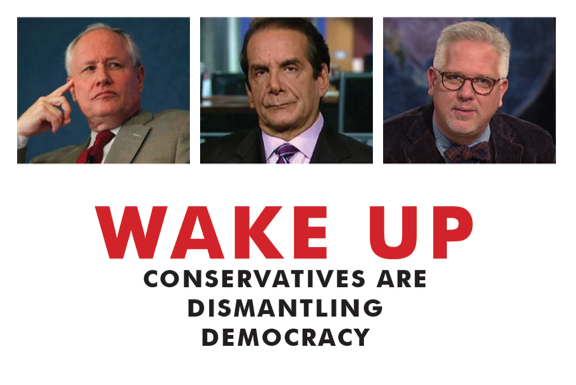
http://thefloridasqueeze.com/2015/05/03/what-do-you-call-it-when-democracy-is-broken-at-the-behest-of-business/
“Democracy is not safe if the people tolerate the growth of private power to a point where it becomes stronger than their democratic state itself.” — Franklin D. Roosevelt, April 29, 1938 (Letter to Congress on the problem of Curbing Monopolies)
We sometimes forget that private monied interests have been campaigning for “small government” since long before Grover Norquist dreamt of drowning government in the bathtub. In this letter to Congress on curbing monopolies, Roosevelt warns that government must be strong enough to make corporations play by the rules or else we’ll be playing by their rules. Implicit is the idea that our interests don’t necessarily align.
The very next words that he wrote were, “that, in its essence, is Fascism—ownership of Government by an individual, by a group, or by any other controlling private power.” Does the word “fascism” shock you the way it does me? I read this and thought “Didn’t FDR know that the first person to mention Nazis loses the argument?” But of course he hadn’t heard that (Godwin’s Law was coined in 1990), and he was dealing with real Nazis, so we have to cut him slack here.
When Roosevelt wrote this, I believe he chose his words carefully. In 1933 he’d encountered a group of right-wing bankers who tried to convince him to turn over his power to them in a corporatist government backed by the military. By the time he wrote this letter he’d already dealt with on attempt by big business to topple democracy in order to muscle its way into power. He called these Wall Street bankers “economic royalists” and warned: “give them their way and they will take the course of every aristocracy of the past – power for themselves, enslavement for the public.”
Wall Street bankers grabbing power for themselves is a very familiar tune. As a matter of fact, the Trans-Pacific Partnership is an overt attempt to achieve many of the end results of a corporate government that Roosevelt warned about.
The TPP asks us to deputize private interests to run public policy as a profit center. This is antithetical to democracy as FDR points out later in his letter: “We believe in a way of living in which political democracy and free private enterprise for profit should serve and protect each other—to ensure a maximum of human liberty not for a few but for all.” As a successful capitalist Roosevelt knew that you can’t have a healthy business environment without fair rules of the road.
We know through leaks that the TPP seeks to tilt those rules toward the largest, most lawyered-up global businesses. Members of the Senate who’ve seen the actual TPP document are so alarmed they’re asking for it to be declassified. Currently they’re only allowed to read it with a minder present (no notes, no photos), and aren’t allowed to discuss it with the public. A staffer can read it only if their Senator is there with them by their side. That’s why Senators Elizabeth Warren and Sherrod Brown challenged President Obama to release the text of the negotiation to the public.
Regardless of the secrecy, we know that the most shocking features of the TPP gives corporate lawyers the ability to preempt “non-tariff barriers” to trade that could impact “expected future profits.”
Let’s be clear — non-tariff barriers are government policies that make it possible to have safe food, good jobs and a clean environment. Basically, this is what Republicans call “big government.” Under TPP, 500 the lawyers for the 1% were empowered to identify government policies on health, environment, labor and safety, that could impact business’ future profit with the intent of preempting any barrier to profit. These are the details they won’t let us see. On this subject, the usually understated Sierra Club says “these provisions elevate corporations to the level of nation states and allow them to sue governments over nearly any law or policy which reduces their future profits.”
(more at link)
http://thefloridasqueeze.com/2015/05/03/what-do-you-call-it-when-democracy-is-broken-at-the-behest-of-business/
KILLING US SOFTLY On abortion we’re one compromise away from third world status
KILLING US SOFTLY On abortion we’re one compromise away from third world statusThe Florida Squeeze
by nashville_brook
http://thefloridasqueeze.com/2015/04/19/killing-us-softly-on-abortion-were-one-compromise-away-from-third-world-status/
This week I traveled to Tallahassee to “tell my abortion story” to the Senate Judiciary Committee. Along with two other women, we went to make women’s voices heard as the fate of the Mandatory Wait Bill (SB 724) was “considered.”
I put “considered” in scare quotes because we all know that there’s no “consideration” in these matters. And, the fact that I was the only one of the three of us who was able to tell my story proves they never intended to deliberate. They hid behind a procedural rule to cut off testimony, because what could women possibly add to a debate that’s already been decided? The suppressed testimony of the two other women can be found below. They had a lot to add, as you’ll learn when you watch these videos, and it’s outrageous that they weren’t permitted to be heard.
Diane's unheard story:
Barbara's unheard story:
My own testimony focused on the fact that while our stories are different, we share the opinion that we don’t need Tallahassee politicians inserting themselves into our lives to remind us of the seriousness of our decisions. Everyone knows that mandatory wait laws are impediments made in bad faith by snickering opponents of reproductive rights.
It’s clear to me that the only way to fight back is to step out of the shadows, so let the headlines read “Local Woman Has Abortion 25 Years ago: Still Doesn’t Regret It.”
In the 40-plus years since Roe v. Wade, we’ve lost so much ground that reproductive freedom barely exists anymore, and this threatens our basic human rights as women. I believe that if we don’t put a human face on it we’re ceding another victory to our opposition.
It was a mistake we made in the 90s. We thought that finally having a Democratic president after 12 years of Reagan/Bush meant we could rest easy on this issue of women’s rights. The rising tide would float all boats. We were wrong.
This is precisely when things went haywire. Political thinkers and Democrats in Congress began asking, “Where can women compromise?” And the answer was ‘late term abortion,’ which is a procedure that’s used only under the most extreme circumstances when the life of mother or child is at stake. People needing this procedure aren’t seeking birth control. They’re fighting for their lives. And yet this seemed a “reasonable” place to cede ground — and it was the camel’s nose under the tent.
Once you abandon the foundational premise that we’re equal members of society with full agency over our healthcare decisions, the forces that desire to “keep us in our place” are empowered on all levels. Forget equal pay, or the right to seek healthcare without discrimination. We’re all “daddy’s little girls” now.
more at link --> http://thefloridasqueeze.com/2015/04/19/killing-us-softly-on-abortion-were-one-compromise-away-from-third-world-status/
Profile Information
Gender: Do not displayHometown: Florida
Current location: Orlando
Member since: Wed Nov 10, 2004, 09:49 AM
Number of posts: 20,958